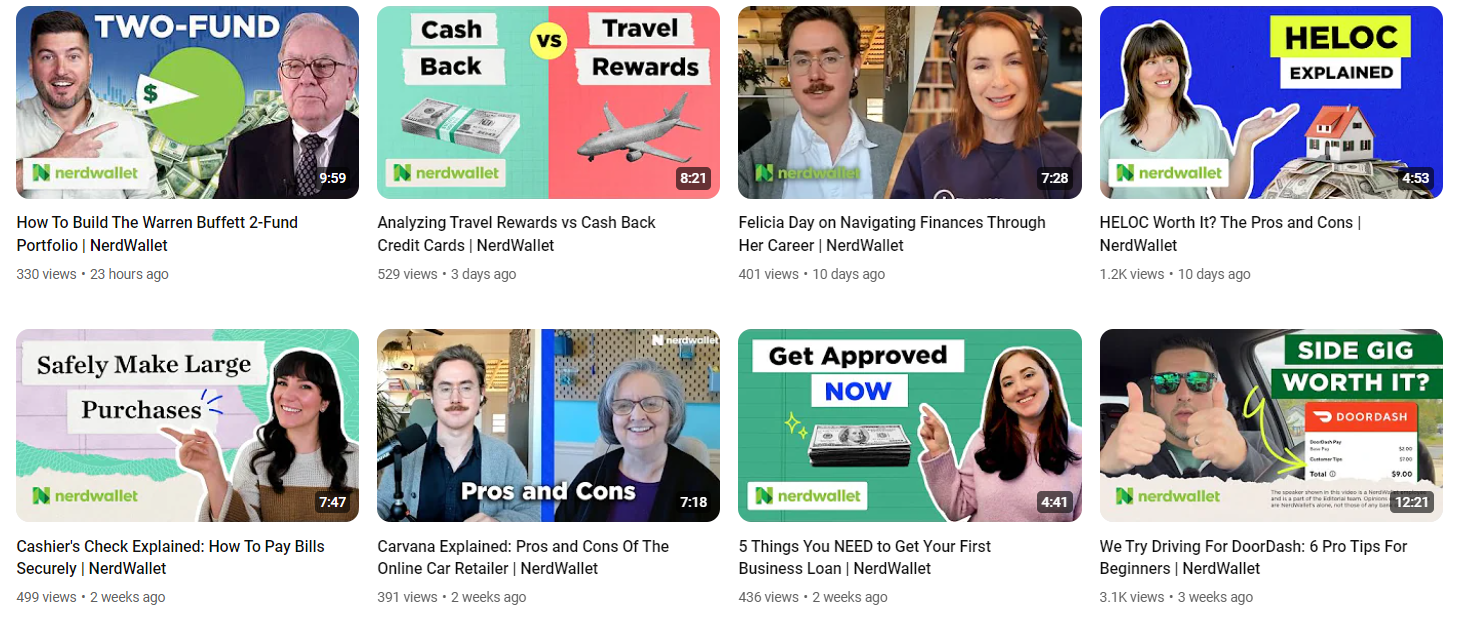Getting people to go to your website is a welcome challenge. While gaining traction doesn’t happen overnight, using the right tactics helps you steadily increase website traffic. Keep reading to learn more about helpful methods to generate traffic to your site.
7 ways to increase website traffic
Generating traffic happens in numerous ways. From writing blog posts to posting videos and using social media, you’ll find a strategy that works well for your business. You don’t need to jump into all of these methods immediately — just find a set that works for you, and you’ll start getting more visitors.
1. Run a blog
If you have a website, you’ll probably benefit from having a blog. Blogs are an opportunity for businesses to be a voice of authority in their industry by posting blogs about relevant topics.

Figure out what your audience wants to know and how long your blog post should be — anticipate their needs. Do they have questions about your product or services? Write a blog about it. Do they have questions about your industry but not specifically about your company? Answer those questions, too.
Running a blog with relevant content establishes your brand as a business that knows what it’s talking about. This process increases your target audience’s faith in you and improves your reputation, encouraging them to keep coming back.
2. Keep content evergreen
While discussing trending topics is beneficial, you need to find a balance between what’s current and keeping content evergreen. You’ll want to create blog posts, videos, and infographics that house important information that will always be necessary for your industry.
You’ll get more traffic to your website when you write about evergreen content and refreshing it with newer information to reflect current trends.
The basis remains the same — it’s “evergreen.” One user could read it today and another two years from now and still get relevant and helpful information.
3. Use videos whenever possible
Videos have repeatedly proven to be one of the most engaging content types. Make videos to go with your blog posts, if possible. You could also post product demonstrations or webinars.

You should embed the videos on your website when possible. However, if you post them on YouTube or social media, use a CTA button or link to your site so users can easily go from watching to browsing your store.
4. Do keyword targeting
Keywords are a must for digital marketing. Research keywords to find out what words and phrases your target audience uses when searching for content in your market. You’ll have to look at both short and long-tail keywords.
Short-tail keywords are the most common terms people use when searching. That means the competition is going to be high. While it doesn’t hurt to use these keywords when you want to gain authority in the industry, it may be better to focus on long-tail keywords.
While long-tail keywords have fewer searchers, they also have less competition.
If you’re a relatively new company in a competitive industry, it can be hard to stand out on a generalized keyword like “blue t-shirt.” However, you might get an in by targeting “athletic blue t-shirts without logo on front.” The term is longer and much more specific, so you need a product or service that fits the description. If you do and create good content, you’ll have a better chance of ranking.
Check your Traffic in Seconds

5. Have a responsive website
Your website needs to be conducive to mobile browsing. While many people still look at content on laptops or desktops, mobile devices are becoming the most popular method.
Users should have the ability to navigate your website on their phones easily. Ensure your website is accessible across numerous devices, including desktops, smartphones, iPads, and more to reach the widest audience.
6. Be active on social media
Social media is a great way to engage with your audience, ranging from prospects to long-time fans. Posting about your website and interacting with users is a surefire way to get people to visit your site — give a brief description of a blog post and include the link, for example.

If users see you answering questions or engaging in conversations with your audience, it lets them know you’re reliable and boosts your reputation. They may end up going to your website on their own purely because of how they see you online.
7. Create a newsletter
Newsletters have been one of the foundational portions of marketing for years. Make your newsletters feel personalized and always include information relevant to your audience.
Link to new blog posts from your team. Encourage users to check out a sale or a specific product. Give them a way to reach out to you for more information. Including links to these different pages on your website will help increase traffic.
Ensure you send a reasonable amount of newsletters with valuable information. Users won’t want to click on links if half the page is covered in them — make strategic choices.
Benefits of boosting traffic
Websites are a customer’s window into your company. A website is still beneficial even if you have a real-life storefront and makes your products accessible for many of your customers.
Increasing traffic to your website helps raise the potential of conversions, whether you want people to shop online or in-store. Improving results page rankings and gaining authority in your industry also increases user traffic.
Boost your website traffic with proven strategies
Increasing traffic to your website is essential for driving conversions and establishing your authority in your industry. By implementing effective strategies like blogging, utilizing social media, and optimizing for mobile, you can attract more visitors and improve your search rankings.
Want to learn how to effectively generate traffic to your site? Discover how our expert team can help you implement successful SEO strategies to boost your online presence. Learn how SEO.com can help you accelerate the online visibility of your business by contacting us today!
Let’s Drive Results Together 

$3bn+
revenue driven for clients



Add WebFX to your content marketing toolbox today
Get SEO Proposal$3bn+
revenue driven for clients



Add WebFX to your content marketing toolbox today
Get SEO Proposal



